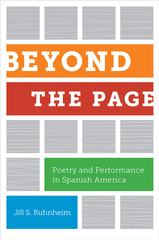Looking North
Writings from Spanish America on the US, 1800 to the Present
Given recent changes in politics and demographics, Latin America and the United States are becoming increasingly important to one another. Recognition of the two regions' differences and similarities may facilitate a more fruitful relationship, with increased respect and understanding.
It is with this in mind that editors John J. Hassett and Braulio Muñoz present a collection of writings that provides a look into the ways in which Spanish America has viewed its northern neighbor over the past two centuries. Gathered here are pieces by well-known figures from the worlds of Spanish American politics, history, philosophy, creative writing, and culture—names like Mario Vargas Llosa, Gabriel Garcia Marquez and Pablo Neruda.
Divided into three sections, Looking North begins by underscoring the cultural and political differences between the two Americas. It opens with a speech by Simón Bolívar to the Venezuelan Congress in 1819 and closes with an essay by Mario Vargas Llosa from 2006 on the controversial wall being constructed between the United States and Mexico. The second section explores the experiences of Spanish American travelers in the US, beginning with an account of former Argentine president Domingo Sarmiento's fascination with the United States during his travels in 1847 and ending with a 2008 essay by Vargas Llosa on the city of New York. The final section encompasses creative writing and commentaries by some of Spanish America's most gifted poets and novelists. It opens with Rubén Darío's "To Roosevelt" from 1905 and ends with Christine Granados's humorous and profound short story "Inner View," first published in 2006.
Touching on history, sociology, politics, and religion, the writings assembled here will be of interest to humanists, social scientists, and anyone intrigued by the ever-growing connection between the United Sates and Spanish America at all levels.
John J. Hassett is the Susan W. Lippincott Professor Emeritus of Modern and Classical Languages at Swarthmore College. He is the co-editor of Towards a Society That Serves Its People: The Intellectual Contribution of El Salvador's Murdered Jesuits. Braulio Muñoz is the Centennial Professor and Professor of Sociology at Swarthmore College. He is the author of A Storyteller: Mario Vargas Llosa between Civilization and Barbarism.
Part I: The Two Americas
Simón Bolívar, “The Angostura Discourse” (Selection, 1819)
José Martí, “Our America” (1891)
José Enrique Rodó, Ariel (Selection, 1900)
Manuel Baldomero Ugarte, “An Open Letter to the President of the United States” (1913)
Gabriela Mistral, “The Infantilism of the North American” (1944)
Leopoldo Zea, “The Culture of the Two Americas” (1971)
Salvador Allende, “Chile: Address to the United Nations General Assembly” (1972)
Irene Zea, “U.S. Hegemony on the American Continent” (1975)
Octavio Paz, “Mexico and the United States: Positions and Counterpositions” (1978)
Sergio Marras, “The First New Days: A Conversation with Roberto Fernández Retamar” (Selection, 1991)
Armando Roa, “The Historic Significance of the United States” (1997)
Mario Vargas Llosa, “A Wall of Lies” (2006)
Part II: Travelers from the South
Domingo Faustino Sarmiento, “Moral Geography” (1847)
Ciro Alegría, “The Race Problem” (1941)
Germán Arciniegas, “English Lessons” (1945)
Luis Alberto Sánchez, “The First Surprise” (1945)
Ernesto Cardenal, “A Trip to New York” (1973)
Víctor M. Espinosa, “We Didn’t Go North to Pick Flowers” (1992)
Eduardo Galeano, “Mea Culpa” (1992)
Mario Vargas Llosa, “New York, New York” (2008)
Part III: The United States as Literary Theme
Rubén Darío, “To Roosevelt” (1905)
Nicolás Guillén, Selected Poems (1967)
Gabriel García Márquez, One Hundred Years of Solitude (Selection, 1967)
Pablo Neruda, Selected Poems (1970, 1973)
Mario Benedetti, “The Weeping of Jimmy Swaggart” (1988)
Esmeralda Santiago, “The American Invasion of Macún” (Selection, 1993)
Christine Granados, “Inner View” (2006)








